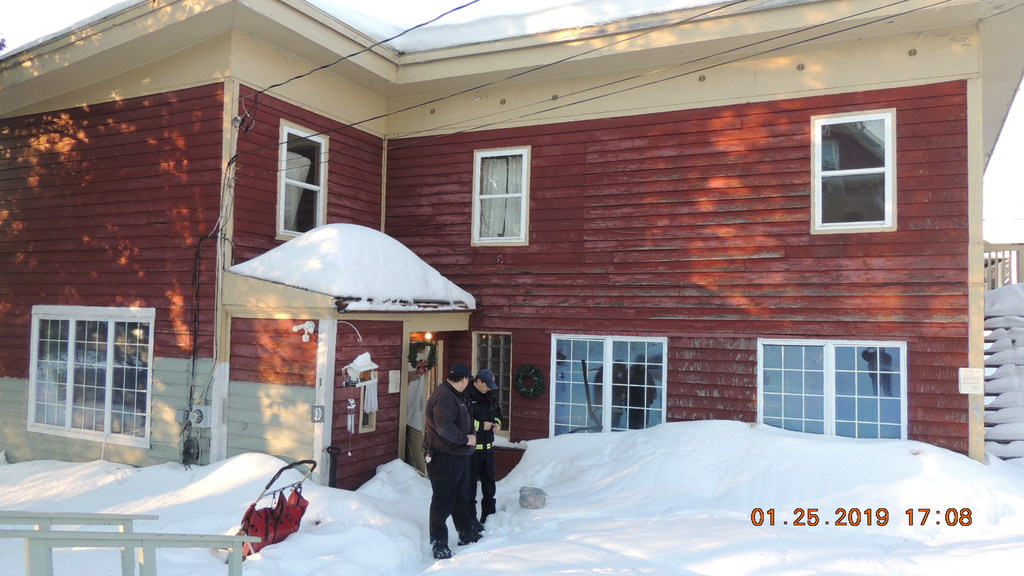
PRESQUE ISLE, Maine — While opioid-related overdose deaths across the state appear to have decreased slightly in 2018, substance abuse and drug trafficking are still major concerns in Aroostook County, with Presque Isle already seeing one fatal overdose this year.
From January through September of 2018, 282 Mainers died from from drug overdoses, five percent less than during the same period of 2017, according to a report from the Margaret Chase Smith Policy Center at the University of Maine.
The ongoing report, commissioned by the Office of the Maine Attorney General, found that the projected number of opioid-related overdose deaths will be down 13 percent from 2017. However, “there is a contrasting increase in cocaine and methamphetamine deaths, and the cocaine is increasingly mixed with fentanyl and heroin,” the report found.
The report does not break down data on overdoses by county for those counties that have seen fewer than 10 overdose deaths, but responding to overdoses has become a regular part of the duties of law enforcement and first responders in rural communities as well as cities.
So far this year, the Presque Isle Police Department has responded to six overdose calls, according to Presque Isle Police Detective Kristopher Beck.
One of those overdoses resulted in death, and four required trips to a hospital in addition to the administration of the opioid overdose treatment known as Narcan, Beck said.
Last year also saw one overdose death in Presque Isle, though it’s not clear exactly how many overdose incidents public safety agencies responded to in the Star City, the detective said.
“Drug overdose cases are the most difficult cases to investigate based upon my experience,” Beck said. “It blows my mind that even the best friend or even a loved one of a person who died due to overdosing on drugs will not talk to the police. Whether it be fear of retaliation or fear of being labeled a ‘snitch,’ people do not come forward willingly.”
While investigating the circumstances behind overdoses are difficult, public safety agencies respond to overdoses fast and are often able to administer Narcan, which acts as an opioid antagonist to block the effects of an overdose.
Typically police and ambulance crews are dispatched together in response to overdose reports, Beck said. Police and ambulance crews carry Narcan, and police may also assist in the aftermath of reviving someone from an overdose, which can cause symptoms of agitation, he said.
On the drug trafficking front, Maine police agencies are continuing to try to address the supplies of opioids such as heroin and fentanyl, as well as drugs like methamphetamine.
In 2018, 44 percent of the Maine Drug Enforcement Agency’s arrests in Aroostook County involved heroin and opioids, said MDEA Commander Darrell Crandall. Of the remaining arrests, 38 percent involved methamphetamine and 18 percent involved cocaine, Crandall said.
“Since the mid 1990’s methamphetamine has consistently retained a stronger presence here than in other areas of the state,” said Crandall.
Crandall said there is no single agency in Maine that tracks all drug overdoses, although the state’s chief medical examiner tracks all fatal overdoses.
“We are hopeful that in the near term, EMS and law enforcement agencies will have a program in place to map all overdoses, but that is not a reality in Maine yet,” Crandall said.
Maine Gov. Janet Mills also is taking steps to address the state’s opioid epidemic through expanded treatment.
In February, Mills signed an executive order setting the goal of expanding medication-assisted addiction treatment in health care facilities, jails and prisons, and expanding the availability of Narcan. Mills has released $1.6 million in funding to purchase and distribute 35,000 Narcan doses and to train 250 recovery coaches around the state.







